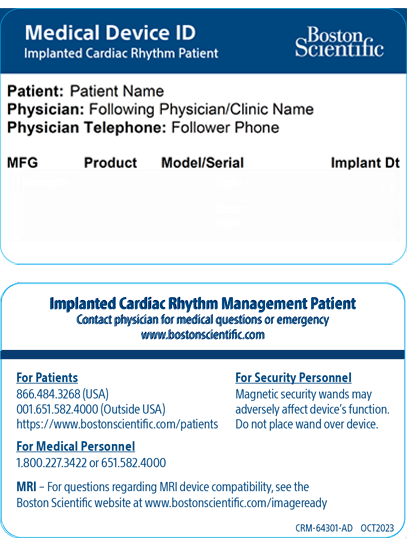Back to the rhythm of life
As you recover with your new Cardiac Resynchronization Therapy (CRT) device, you may begin traveling again. It’s safe to travel with your CRT device as long as you talk to your doctor, carry your Medical Device ID Card and understand the following precautions before taking off.

Airport security
Going through airport security can be confusing even for people without an implanted device. To help make the process easier, be sure to show your Medical Device ID Card at the first security station. This card identifies you as an implanted device patient. After showing your card, follow the security staff’s directions. Depending on the airport, the staff may do one of the following:
- Send you through the security full body scanner. The Advanced Imaging Technology (AIT) full body scanner will not harm your CRT device, or change the programmed settings. However, your device contains metal parts that may set off airport security metal detector alarms
- Use a hand-held security wand. If held over your CRT-D or CRT-P for too long, airport security wands could temporarily affect your device. If a wand must be used, tell the security officer that you have a CRT device, and to avoid holding the wand over your implanted area
- Do a hand-pat search. If you request a hand-pat search, it can be conducted in a private area away from public view
Note: The full body scanner will show your device on their image, but it will not sound an alarm while you are inside the scanner. You may be asked to show your Medical Device ID Card or to stand aside for a hand-pat search.
Medical device ID card
Whether you’re running a quick errand or going away for an extended trip, it’s important to carry your Medical Device ID Card with you at all times. In an emergency, your card will let medical and security personnel know that you have an implanted device. In addition to your Medical Device ID Card, Boston Scientific offers a patient security card for international travel. The card explains in 13 languages that your implanted device may trigger airport security alarms. To get a Medical Device Patient Security Card, call us at 1-866-484-3268.

Find a heart specialist while you’re traveling
You can search for facilities nationwide and internationally that treat patients with Boston Scientific CRT devices should you need assistance while traveling.